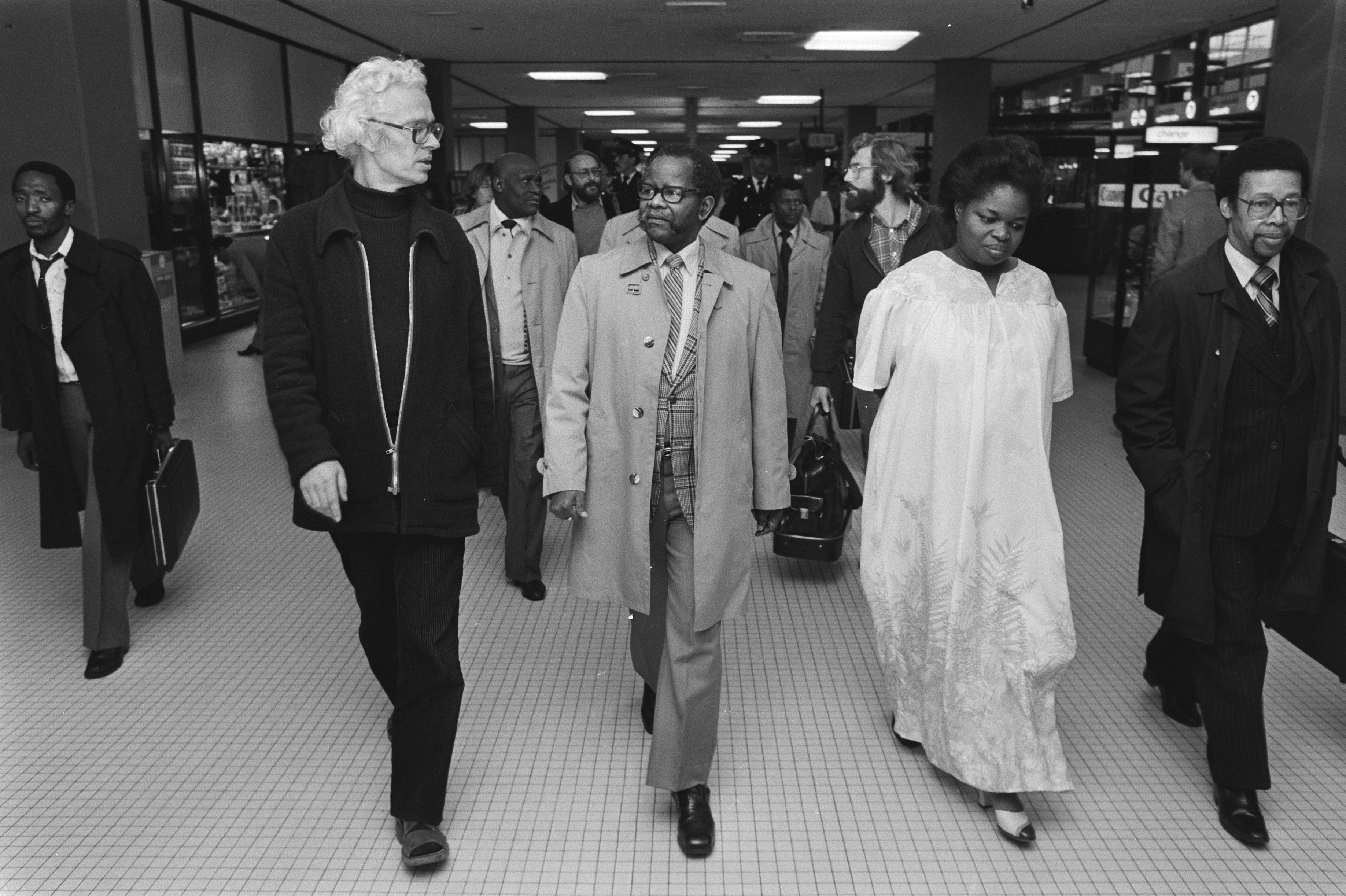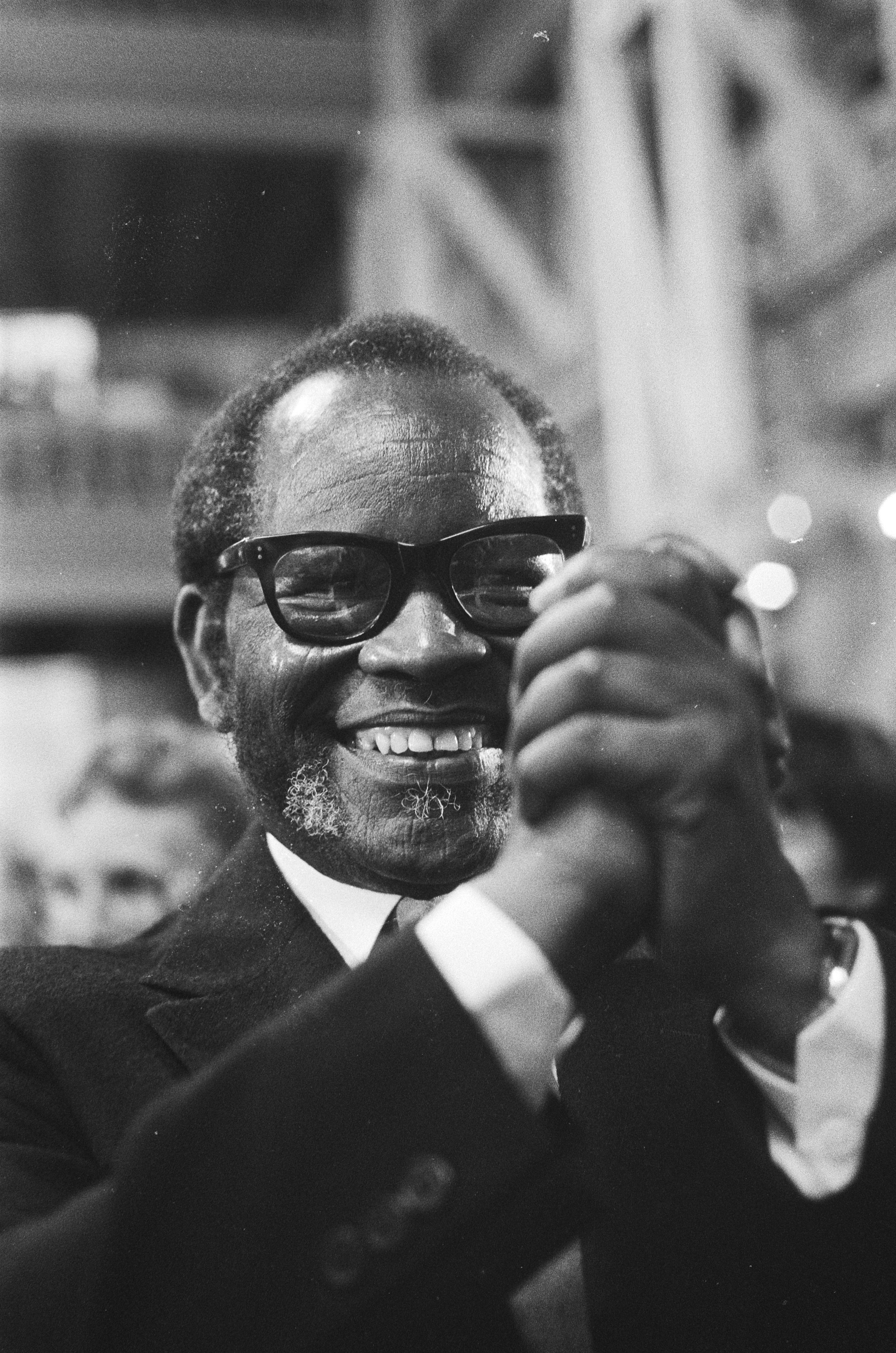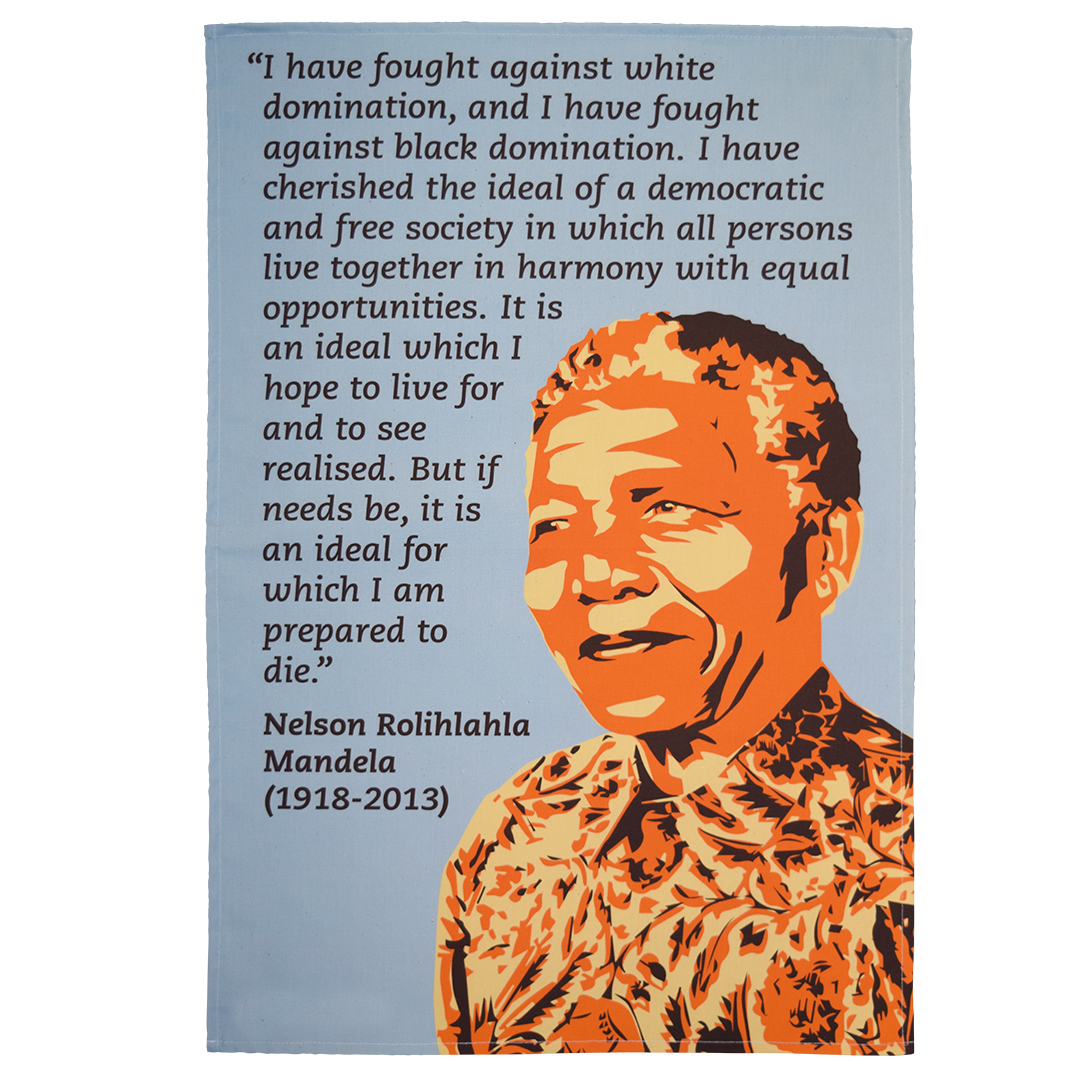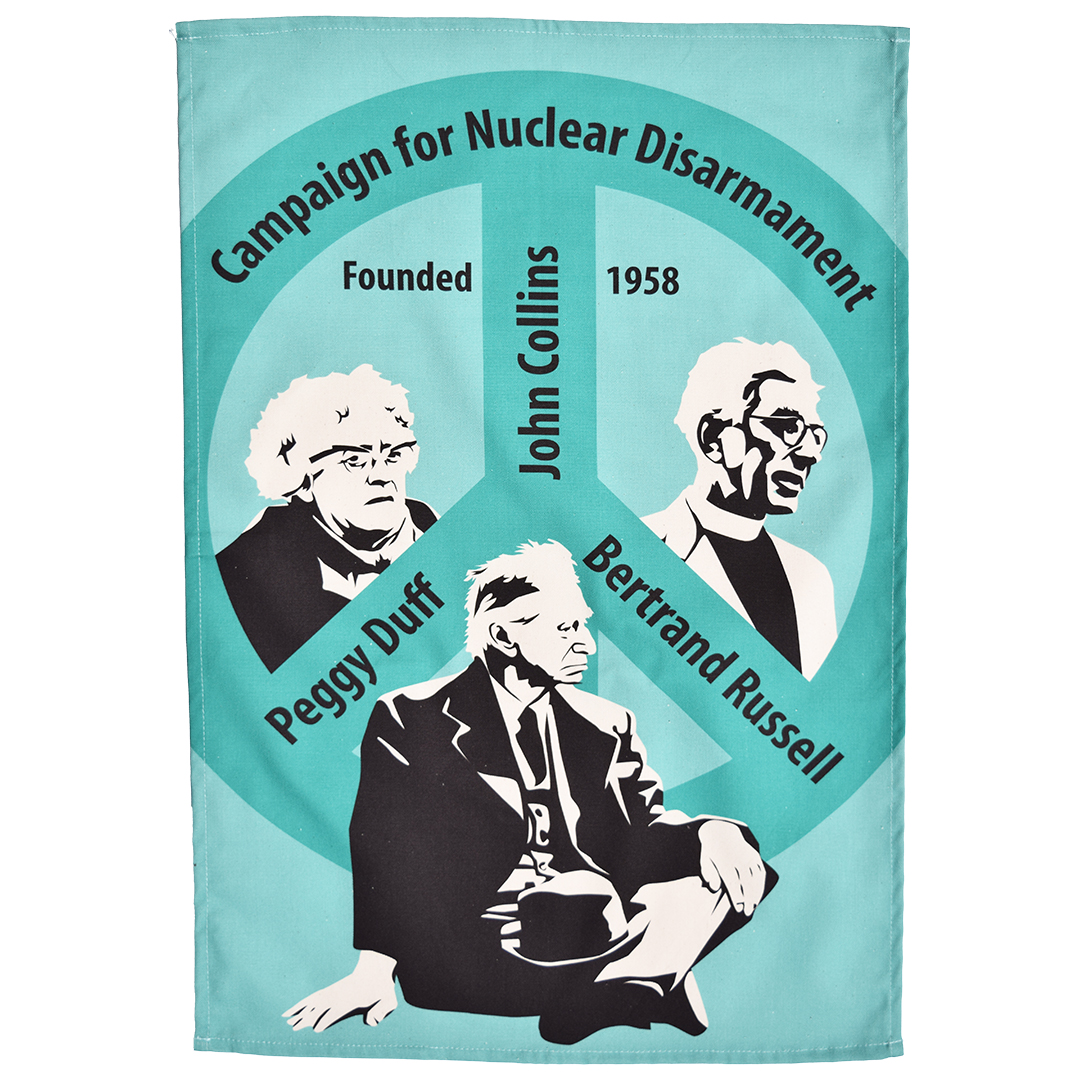The Lesser-Known Hero of the Anti-Apartheid Movement
Posted by Pete on 27th Oct 2021

Oliver Tambo was essential to the global success of the fight against Apartheid...
"It is our responsibility to break down barriers of division and create a country where there will be neither Whites nor Blacks, just South Africans, free and united in diversity." - Oliver Tambo
What links Muswell Hill in North London to the struggle against Apartheid South Africa?
Well, the fight against white supremacy in South Africa was not just a national one: it involved the mobilisation of a worldwide network of resistance.
And Oliver Tambo was the mobiliser-in-chief.
Nelson Mandela was born in 1918, a year after Oliver Tambo. Both would become leaders of the anti-Apartheid movement.
Click to view our Nelson Mandela tea towel
Born on this day in 1917, in a farming village in what’s now the Eastern Cape, Tambo was a bright and rebellious young man – a dissident from the word ‘go’.
Despite being an excellent student, he was expelled from the University of Fort Hare in 1940 for leading protest actions against the administration.
He nevertheless managed to carve out a legal career in Johannesburg, working with a certain Nelson Mandela…
And business wasn’t Tambo’s only link to the young Mandela.

Oliver Tambo in 1983.
Having met at Fort Hare, both men had been involved in the struggle against white supremacy for several years when the hard right-wing National Party was elected in 1948.
Mandela and Tambo had played a major role in revitalising the African National Congress (ANC), co-founding its new Youth League in 1944.
At the end of the decade, Tambo and his comrades forced through a ‘Programme of Action’ against the grumbling Old Guard.
Instead of the endless petitioning which had become ANC dogma, the Party now pursued a strategy of civil disobedience against the Apartheid regime – boycotts, strikes, non-collaboration.
On the back of this new dynamism, Tambo rose up through the ranks. He was made Secretary-General of the ANC in 1955, and then Deputy President in 1957.
But leadership brought with it new risks.
The increasingly paranoid Apartheid regime was ramping up political persecution in South Africa.
Things started to get dangerous, and the ANC decided to send Tambo into exile.
On 27 March 1960 – a week after the police massacred unarmed black protestors at Sharpeville – Tambo crossed into Bechuanaland (now Botswana).
He wouldn’t return to South Africa for thirty years.
While living in London, Tambo worked with John Collins, one of the three founders of CND.
Click to view our CND tea towel
But his time in political exile wouldn’t be wasted. Oliver’s wife, Adelaide, was soon smuggled out of South Africa with their kids, and the family made a home in Muswell Hill, North London.
Adelaide turned the place into a hub for South African exiles, all the while working long hours as a nurse at St George’s Hospital in Tooting.
Oliver, meanwhile, was often away for long periods, trying to raise international support for the ANC.
He travelled to Egypt, China, New York, and the Soviet Union. In 1961, he accompanied Chief Albert Luthuli, then President of the ANC, to Stockholm for his Nobel Peace Prize.
Back in Britain, Tambo built close ties with figures like Rev. John Collins as they developed a solidarity movement against Apartheid in South Africa.
Tambo also spent a great deal of time in sub-Saharan Africa, helping to run the bases of the ANC’s armed wing, uMkhonto we Sizwe (MK), which launched attacks on the apartheid regimes of South Africa and Rhodesia from neighbouring states.
After decades of globe-trotting struggle, Tambo’s work began to pay off.
In conjunction with a rising revolutionary tide within South Africa during the 1970s and ‘80s, the worldwide solidarity movement pushed Apartheid to the brink.
In 1988, Tambo was involved in the commencement of secret talks with the South African government. Then, in February 1990, the ANC was legalised.
The overthrow of South African Apartheid was afoot.
But Oliver Tambo would not live to see it done. He returned to South Africa on 13 December, 1990, but after two strokes, his health was giving out.
On 24 April, 1993, Tambo passed away – a year before his old friend, Nelson Mandela, assumed office as the first president of a democratic South Africa.
His name may be less well-known than Mandela’s is today, but his work was crucial to defeating one of the most reprehensible regimes in modern history.
Key dates in Tambo's life:
- 27 October 1917: Tambo is born in Eastern Cape
- 1938: Graduates high school
- 1940: Expelled from the University of Fort Hare.
- 1944: Founds the ANC Youth League with Nelson Mandela and Walter Sisulu
- 1948: The National Party is elected in South Africa
- 1950: At Tambo’s instigation the ANC launches the ‘Defiance Campaign’ of civil disobedience
- 1955: Tambo elected Secretary-General of the ANC
- 1957: Tambo elected Deputy President of the ANC
- 27 March 1960: Tambo goes into exile
- October 1962: Tambo appointed head of the ANC’s Mission in Exile
- 1967: Becomes President of the ANC upon Chief Albert Luthuli’s death
- July 1985: Amid growing resistance, the apartheid government declares a State of Emergency
- 1988: Tambo involved in secret talks with the South African regime about an end to apartheid
- 13 December 1990: With the ANC now legalised, the Tambo family return to South Africa
- 24 April 1993: As the apartheid regime crumbles, Tambo dies


